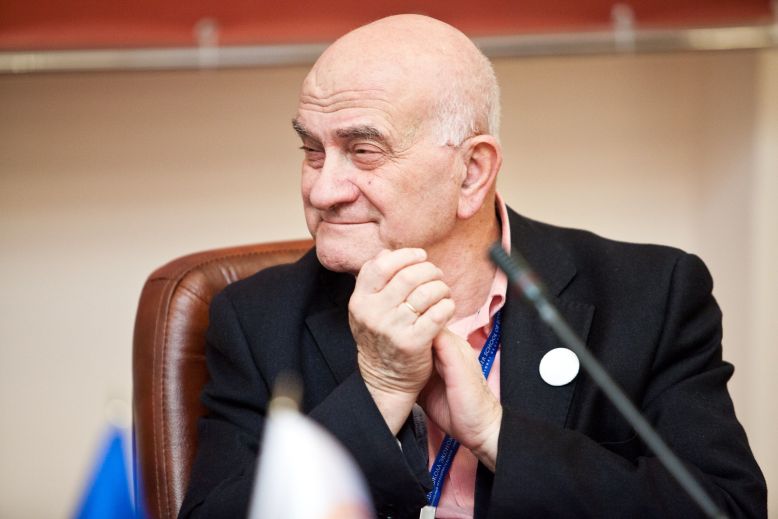Evgeny Yasin: ‘The HSE, the New Economic School and Gaidar Institute Are Restoring Research to the Pre-Revolutionary Level in Russia’
Today, HSE Academic Supervisor Evgeny Yasin celebrates his 80th birthday. The HSE News Service congratulates him, and in honour of the celebration, is publishing an extract from Andrey Kolesnikov’s book ‘Dialogues with Evgeny Yasin’.

― Following a government decree from 1992, I was appointed Academic Supervisor, and Yaroslav Kuzminov became the HSE director and organizer, which means that I played key role from a conceptual standpoint, and Kuzminov – from an organizational one.
― And then, after 1992, while working in the Ministry of Economic Development and the government you weren’t able to pay much attention to the HSE…
― No, I wasn’t. That’s why an outstanding accomplishment in the HSE development both conceptually and organizationally belongs to Kuzminov. He was chief figure in this process, and he deserved it.
― What did you plan to do with the HSE from the very beginning? What were your expectations?
― I apologize if I sound a bit histrionic, but in these seemingly small actions of small people were the grandeur of the era. We knew well that a huge change in the country’s history was taking place in front of us, although many of us felt that Russia had moved into the background, that the superpower was turning into an ordinary country...
But we were absolutely certain of the fact that Russia would become a democratic country with a market economy. Our previous goal was to raise the level of education and research in the country. The power, confidence and reputation of the new Russia should be based on intellectual resources.
The HSE became a kind of standard of educational reform, which was inspiring. After all, in addition to material incentives, an individual has creative motivation: you understand that people need you, that you take part in implementing a great idea. New approaches, the cult of knowledge, science, absolute respect for ethics and intolerance for bribes came to the HSE with the reform of education.
― So you started from yourselves?
― Yes, we did.
― But you personally devoted yourself to the HSE in 1998?
― In July 1998, I was dismissed from the position of minister, although I still have been engaged in government issues for a long time. Only at the end of 1999 did I become well-grounded at the university. I would like to emphasize the fact that, considering myself one of the authors of liberal reforms and dealing with macroeconomics, I have always felt confident about my colleagues who are involved in education reforms.
― Did you become absorbed into the HSE more through teaching students, through research work, consulting with government authorities, creating a scientific community, or through all of these activities?
― In general, it was through all of them. Initially it was impossible to make the HSE a think tank of the reforms right away. But as time went by, I saw many worthy people come from there. Education became the first area where the HSE’s competitive advantages became evident.
― So it was due to increasing research activity, government consulting, reforms of education, healthcare and administration, the prestige of the HSE Annual International Conference and academic development that the HSE became a leading university.
― The HSE really started to draw public attention and took a leading position. A lot of researchers working in different areas had the feeling that if they didn’t join the HSE they would fall behind; and if they joined our university, they would take first places in their areas of research. That’s the reason we established several powerful new faculties. The Faculty of Mathematics is our brilliant achievement.
The original concept of an economic college, which deals only with questions of economics, faded into the idea of the university. Our mission goes beyond the university. It’s the feeling of people’s self-respect. It’s a pleasure for me to take part in Academic Council sessions and to communicate with my colleagues. The young ones inherited the virtues of the older generation and already they can do more than we do.
Oleg A. Zamulin
Anna Kachkayeva
Irina M. Savelieva

